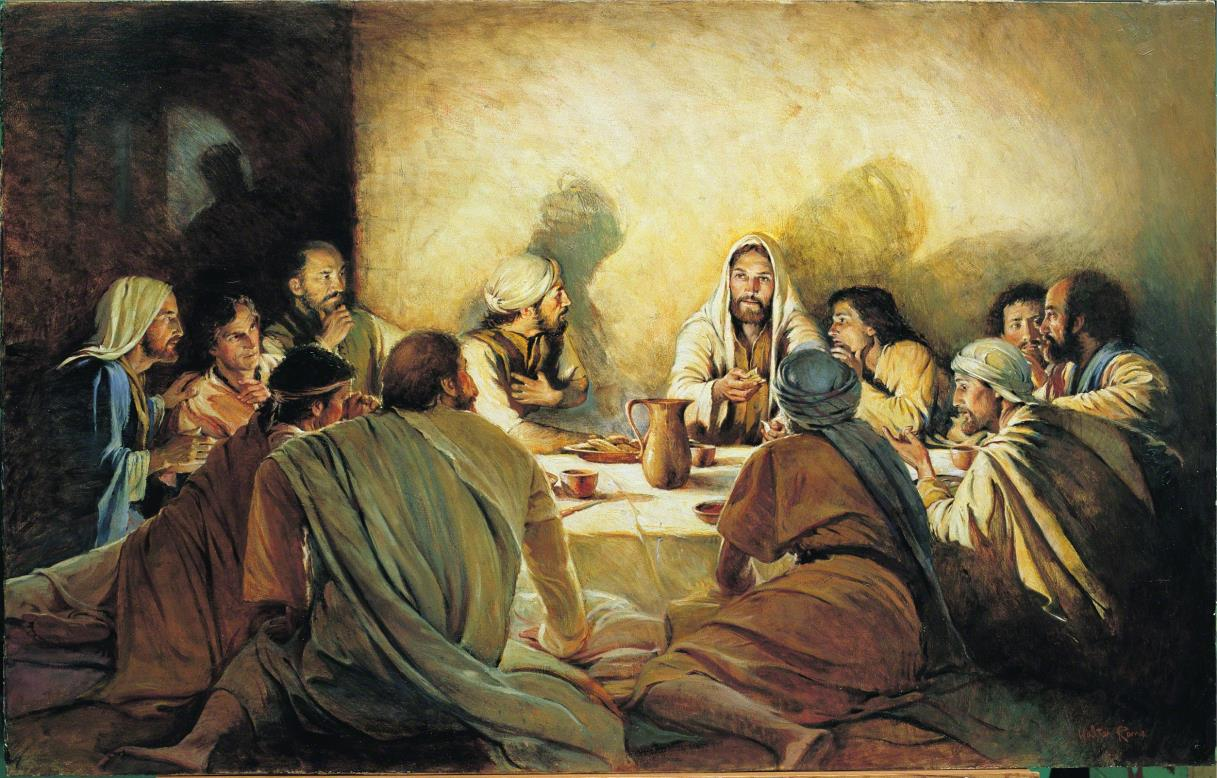Holy Supper
Why did the Lord command that we use unleavened bread but fermented wine?
It is the spirit that makes alive; the flesh profits nothing. The words that I speak to you are spirit, and they are life (John 6:63).
The greatest power is in correspondences, because in them heaven and the world, or the spiritual and the natural, are together…. The Lord also by this means is in firsts and at the same time in ultimates. On this account the sacraments have been instituted through correspondences, and therefore there is the Divine power in them (Invitation to the New Church 59).
“Bread” signifies what is celestial, because “bread” means all food in general, and thus in the internal sense all celestial food… The “bread” signifies all the things represented by the sacrifices, thus in the internal sense the Lord Himself. And because the “bread” signifies the Lord Himself, it signifies love itself toward the universal human race, and what belongs to love, as well as man’s reciprocal love to the Lord and toward the neighbor (AC 2165:1, 4).
Its being “unleavened,” or not fermented, signifies that it should be sincere, and thus from a sincere heart, and free from uncleanness (AC 2177:5). The good of innocence, which is represented by the paschal lamb, cannot be appropriated to anyone except through temptations. By “unleavened bread” such good is signified (AC 7854). In the Word “bread” signifies in general all celestial and spiritual food, thus celestial and spiritual things in general…. That these should be free from everything impure was represented by bread without leaven; for “leaven” signifies that which is evil and false, by which celestial and spiritual things are rendered impure and profane (AC 2342).
As further regards what is leavened and what is unleavened, be it known that the purification of truth from falsity with man cannot possibly exist without fermentation, so called, that is, without the combat of falsity with truth and of truth with falsity; but after combat has taken place, and truth has conquered, then falsity falls down like dregs, and the truth comes forth purified, like wine which grows clear after fermentation, the dregs falling to the bottom. This fermentation or combat exists chiefly when the state with man is being changed, that is, when he begins to act from the good that is of charity, and not as before from the truth that is of faith. For the state has not as yet been purified when the man acts from the truth of faith, but it has been purified when he acts from the good which is of charity, for then he acts from the will, but previously only from the understanding. Spiritual combats or temptations are fermentations in the spiritual sense, for then falsities desire to conjoin themselves with truths, but truths reject them, and finally cast them down as it were to the bottom; consequently, they purify (AC 7906:2–3).
Afterwards the assembly of Englishmen, enkindled with the desire of being wise, said to the angels, “So many various opinions are spoken of the Holy Supper, tell us what is the truth.” The angels replied, “The truth is that the man who looks to the Lord and performs repentance, is conjoined with the Lord by means of that most holy sacrament, and is introduced into heaven.” But some of the company said, “This is a mystery.” To which the angels replied, “It is a mystery, but still such that it can be understood. The bread and wine do not produce this effect, for there is nothing holy in them, but material bread and heavenly bread correspond mutually to each other, and so do material wine and heavenly wine; and heavenly bread is the holy of love, and heavenly wine is the holy of faith, both from the Lord, and both the Lord. Thence there is a conjunction of the Lord with man, and of man with the Lord, not with the bread and wine, but with the love and faith of the man who had done the work of repentance; and conjunction with the Lord is also introduction into heaven.” And after the angels had taught them something concerning correspondence and its effect, some of the company said, “Now for the first time we understand.” And when they said, “We understand,” behold, a flame with light descending from heaven consociated them with the angels, and they loved one another (AR 224:13).
Questions
- Which comes first in life, good or truth?
- Do we seek understanding or a change of heart in taking the Holy Supper?
- Why must the bread be unleavened, while the wine needs leaven to be purified? (Fermentation purifies wine of leaven.)
- In AR 224, the angels say, “It is a mystery, but still such that it can be understood.” Do you feel you understand a bit more than before? Is there a little more light descending from heaven? If not, can you formulate a question or two?
| previous |  |
next |
|---|


